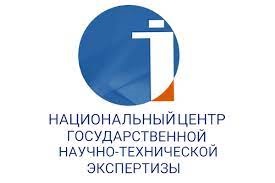THEORETICAL PROBLEMS OF DICTIONARY FORMATION
https://doi.org/10.55491/2411-6076-2022-1-53-64
Abstract
Historical lexicography systematically conducts scientific research of historical lexicological, historical dialectological, historical phonetic, historical grammatical works and sources that allow us to study the historical vocabulary and vocabulary of the Kazakh language from a comprehensive linguistic point of view, determines ways, methods and methods of their use in the formation of historical dictionaries. The theory of historical lexicography serves as a scientific and theoretical basis for the practice of creating etymological, historical-dialectological, and historical dictionaries of the Kazakh language and allows them to be improved. At the same time, in accordance with the scientific level of modern lexicography, there is a need to define the goals and objectives, structural features, and principled foundations of historical lexicography in Kazakh linguistics. Due to the development of the scientific and information space in modern society and the improvement of the lexicography industry, the development of historical lexicography and computer historical lexicography also has an impact on the dynamic development. XV-XX centuries of the Kazakh language. one of the most important tasks of modern Kazakh linguistics is the creation of an electronic body of texts and a historical electronic file fund (journalistic, epistolary, from works of art, oral literature, historical records, etc.), dictionaries of a historical character created for different centuries, a historical dictionary of the modern Kazakh language, a historical and etymological dictionary of the Kazakh language, reflecting the manifestation of Kazakh cultural and spiritual, national values in the language. It is necessary to define the main principles of forming a historical and etymological dictionary and create an electronic Historical Dictionary both in the field of Turkology and Kazakh linguistics. This is one of the guarantees of a deeper understanding of the historical layers of the Kazakh language, that our native language will not be absorbed in the era of globalization.
References
1. Amirova T.A., Olkhovikov B.A., Rozhdestvensky Yu.V. (1975) Essays on the history of linguistics. – Moscow, 1975. – 559 p. (in Russian)
2. Arnold I.V. (1959) Lexicology of the modern English language. – Moscow, 1959 – 351 p. (in Russian)
3. A large encyclopedic dictionary. Linguistics. (1998) – Moscow, 1998 – 685 p. (in Russian)
4. Gak V.G. (1977) On some patterns of lexicography development (educational and general lexicography in historical aspect) // Actual problems of educational lexicography. – Moscow, 1977. - pp.13-18. (in Russian)
5. Denisov P.N. (1978) Practice, history and theory of lexicography in their unity and interdependence // Problems of educational lexicography and teaching vocabulary. – Moscow: Russian Language, 1978. – pp. 25-33. (in Russian)
6. Kozyrev V.A., Chernyak V.D. (2004) Russian lexicography. – Moscow: Bustard, 2004. – 285 p. (in Russian)
7. Malbakov M.M. (2002) Bir tildi tusindirme sozdiktin kurylymdyk negizderi. – Almaty: Gylym, 2002 – 367 b. (in Kazakh)
8. Morkovkin V.V. (1987) On the scope and content of the concept of «theoretical lexicography» // Questions of linguistics. – Moscow, 1987. – No. 6. – pp.4-8. (in Russian)
9. Musayeva Zh.O. (2006) Kazak lexicografiyasynda koldanylatyn ataulardyn metatildyk tabigaty. Philologist.gyl.kand... disser. 10.02.02 - Kazakh tili. – Almaty, 2006. – 125 b. (in Kazakh)
10. Shcherba L.V. (2004) Language system and speech activity. – 2nd edition, stereotypical. M.: Editorial URSS, 2004. – 432 p. (in Russian
Review
For citations:
Kubdenova G.B. THEORETICAL PROBLEMS OF DICTIONARY FORMATION. Tiltanym. 2022;185(1):55-66. (In Kazakh) https://doi.org/10.55491/2411-6076-2022-1-53-64
JATS XML

















